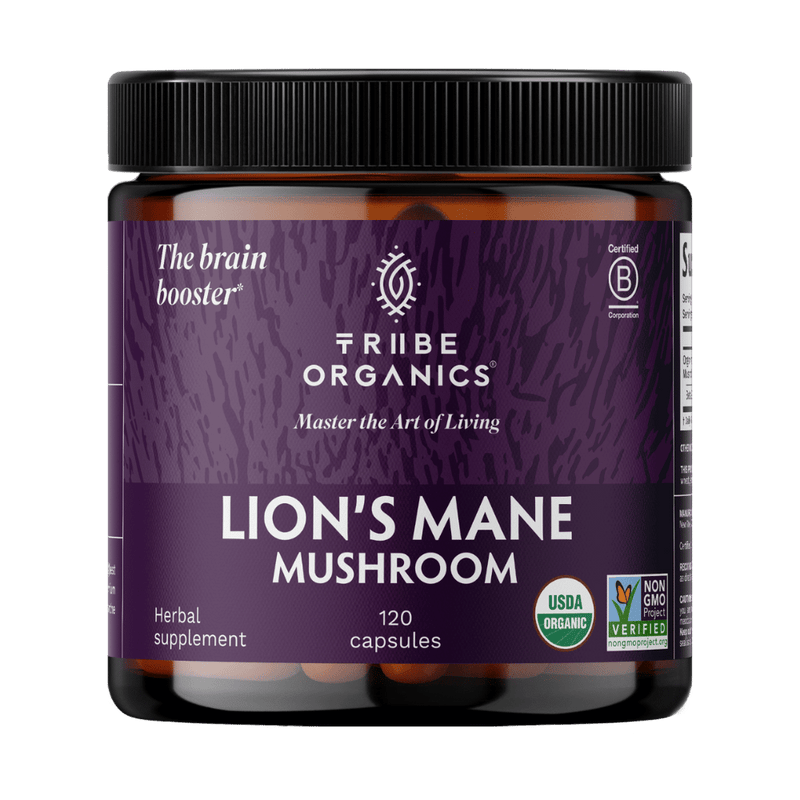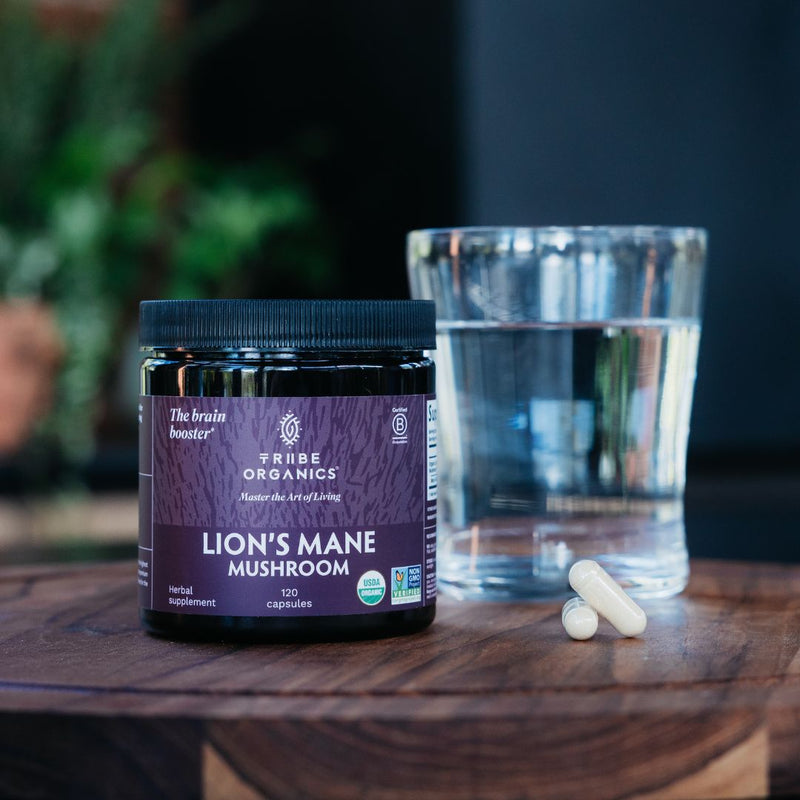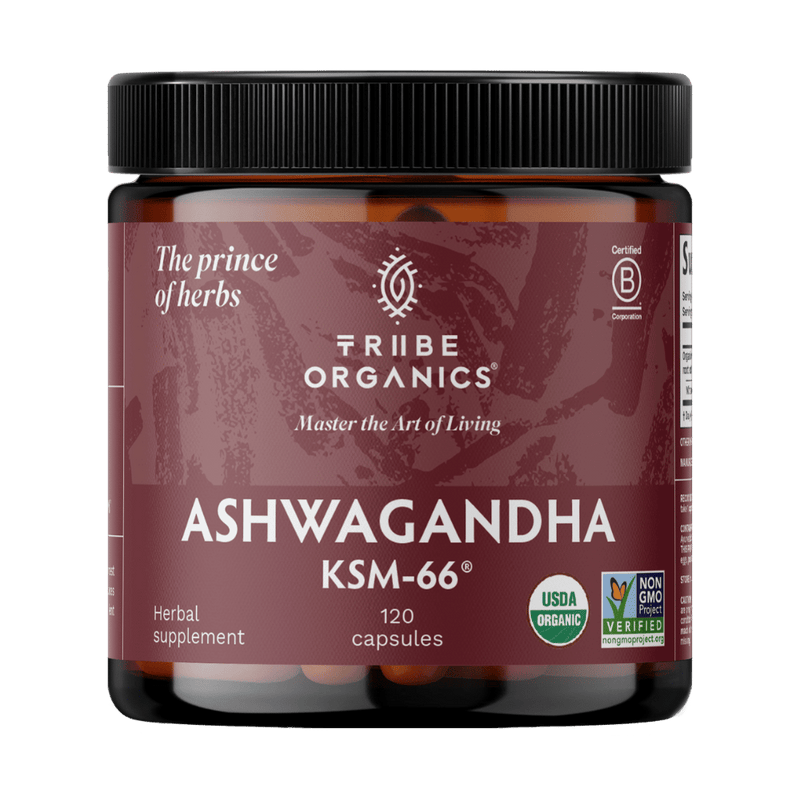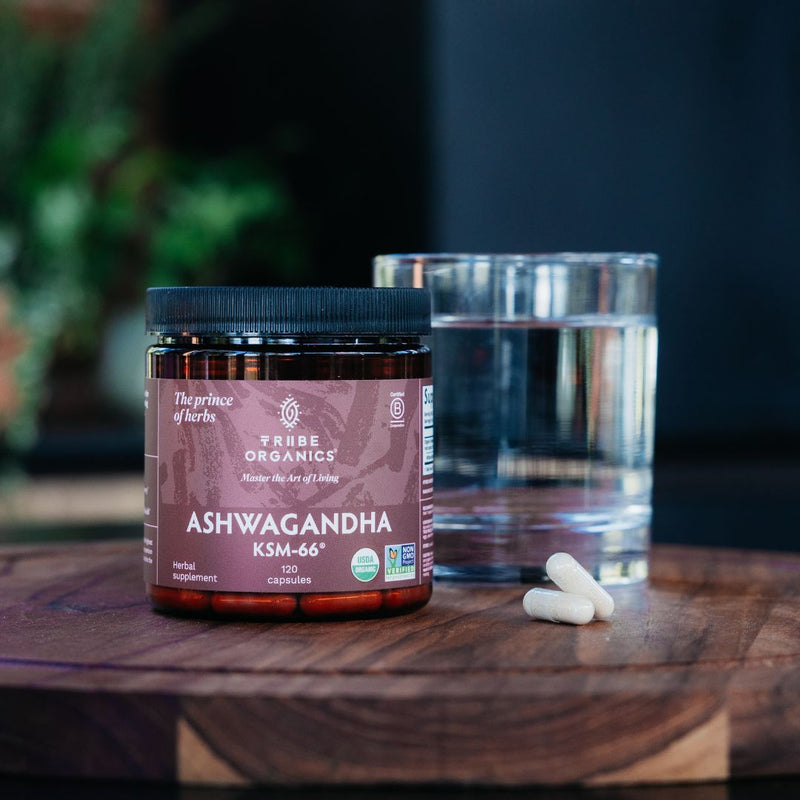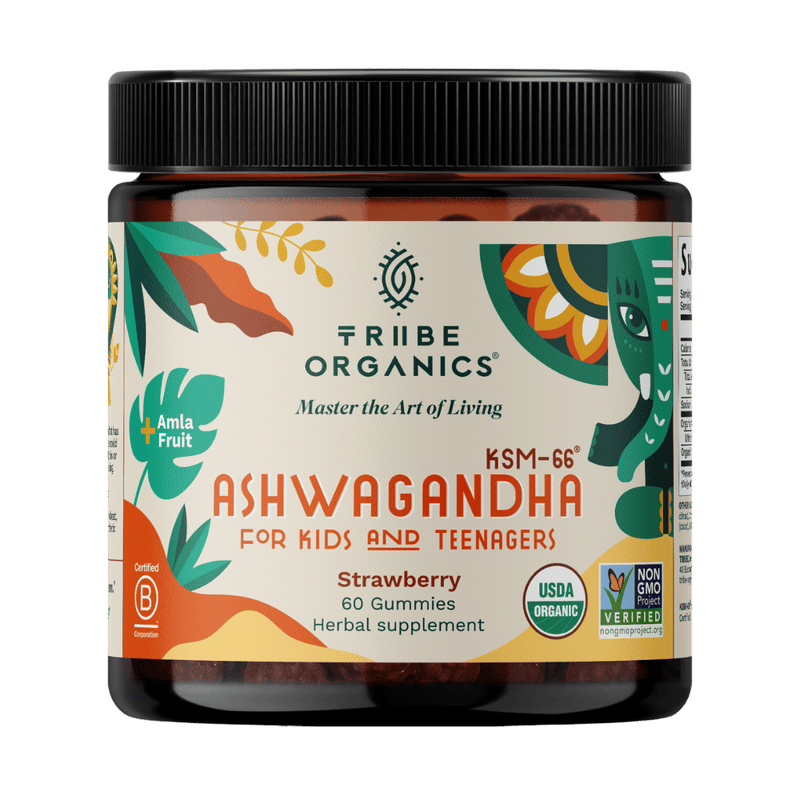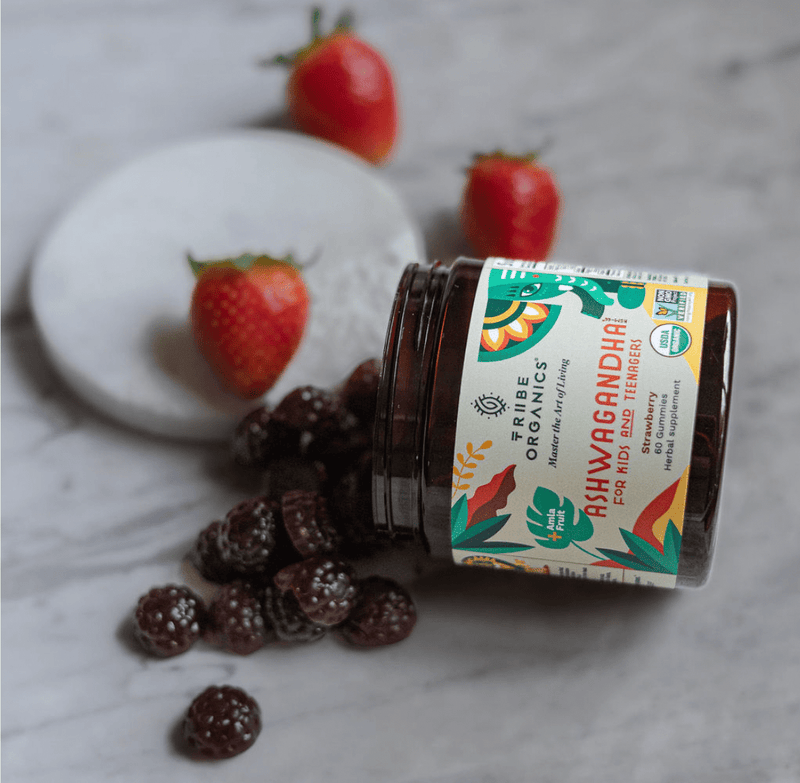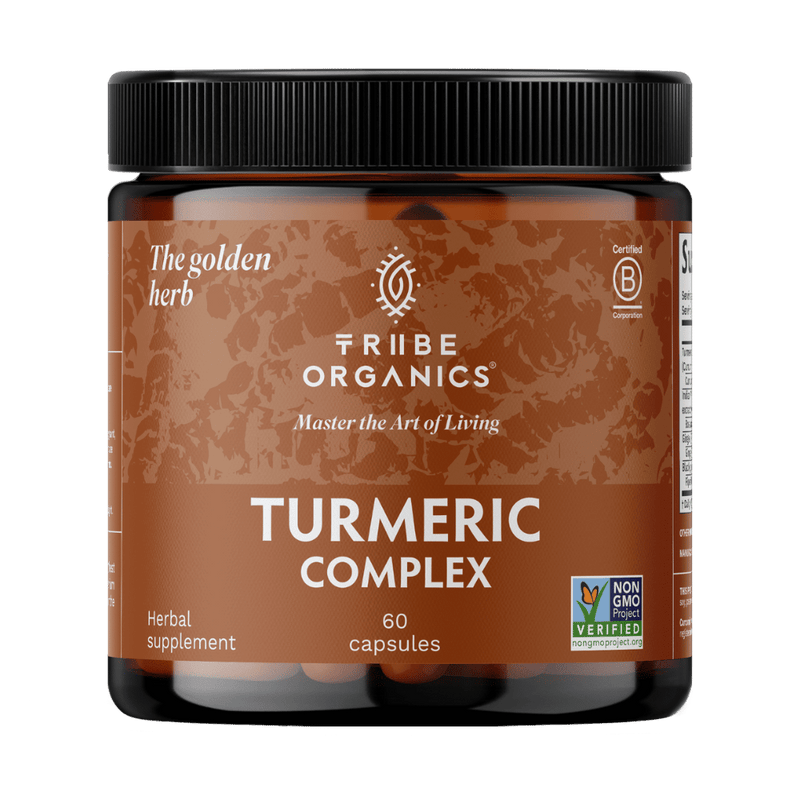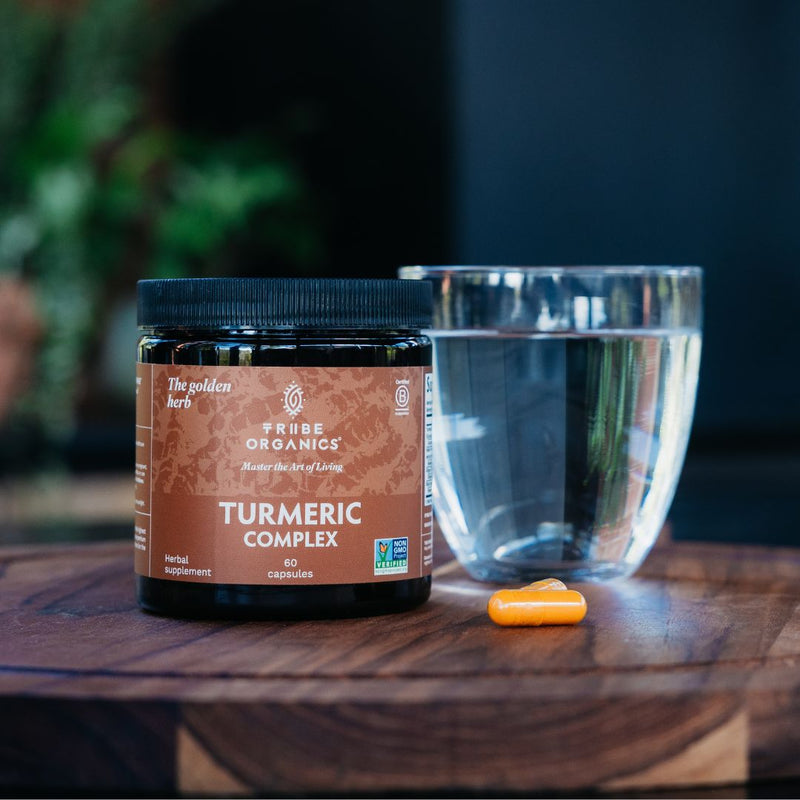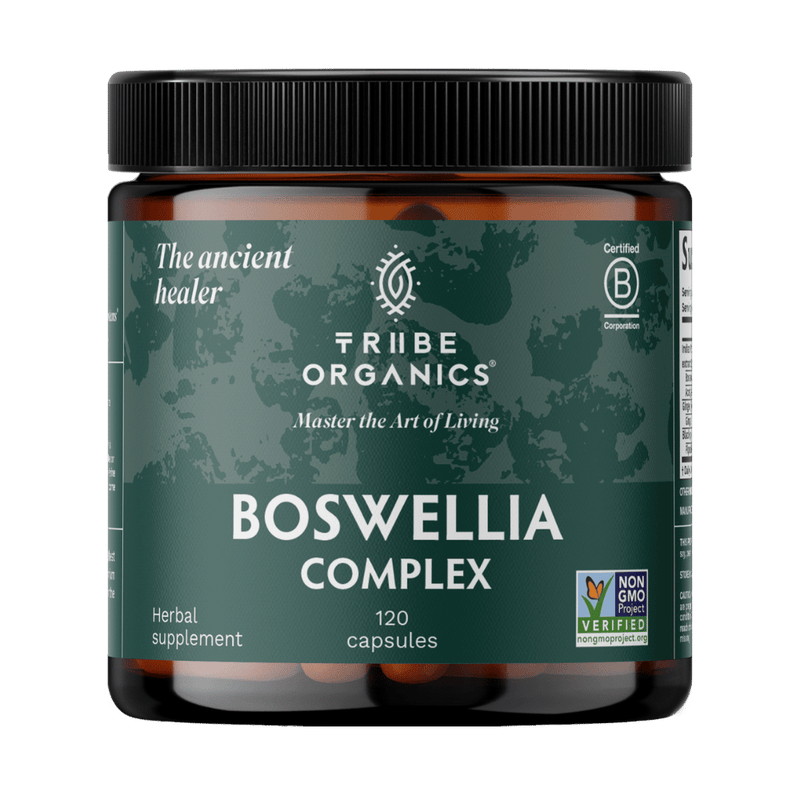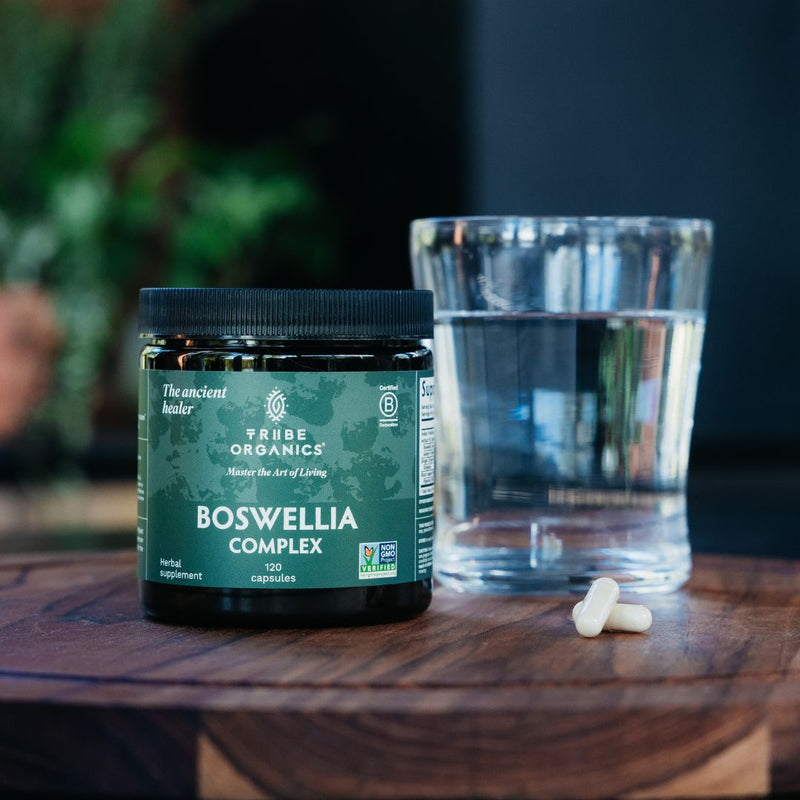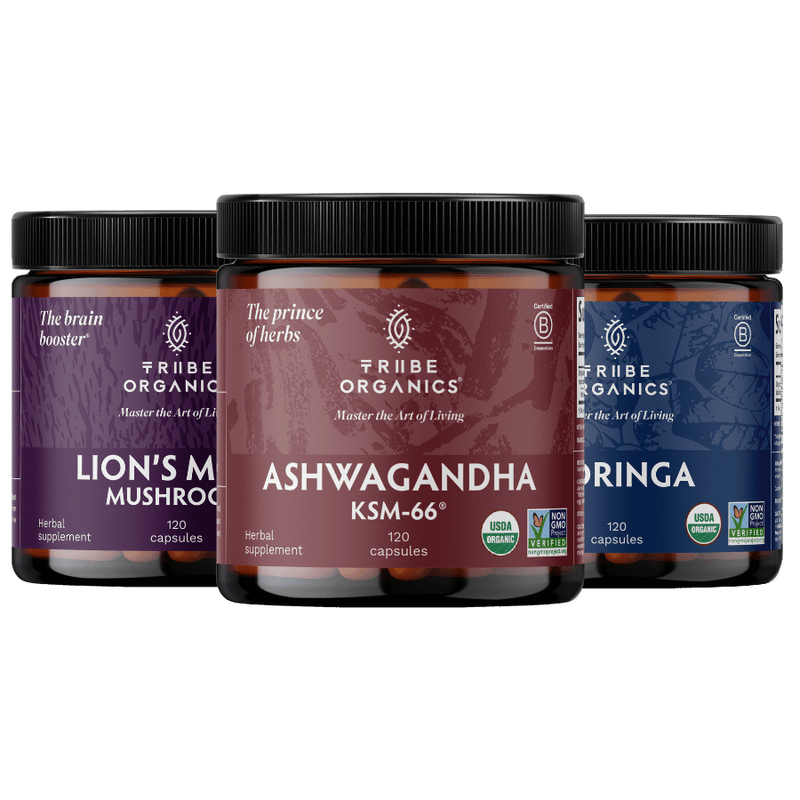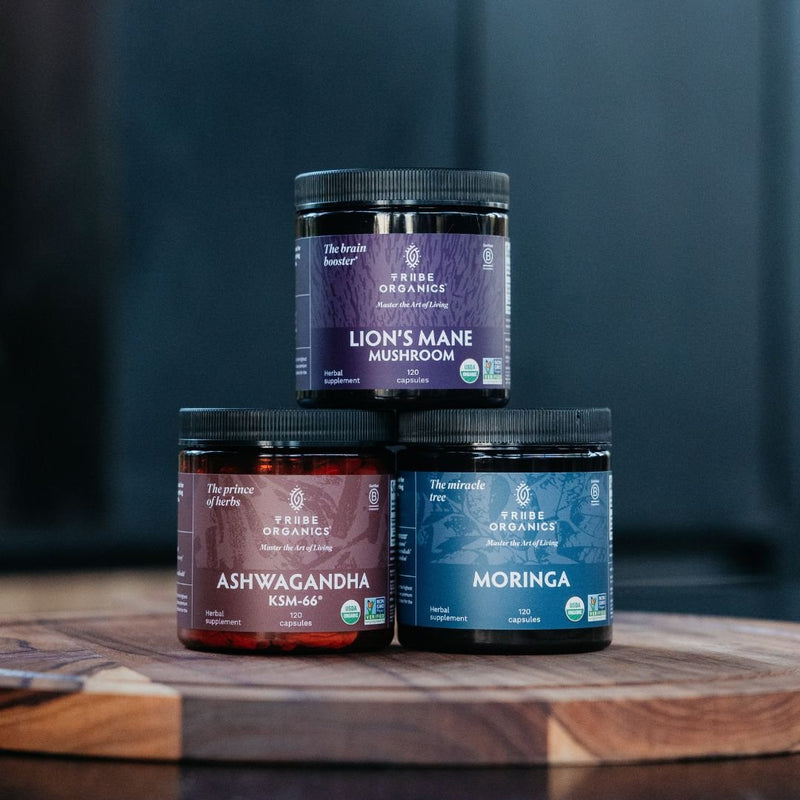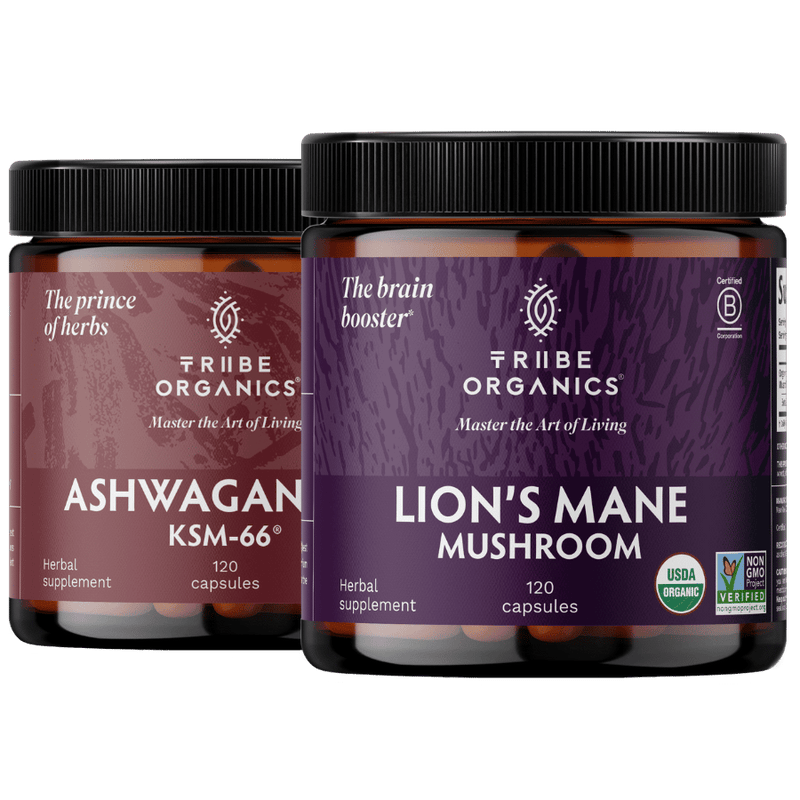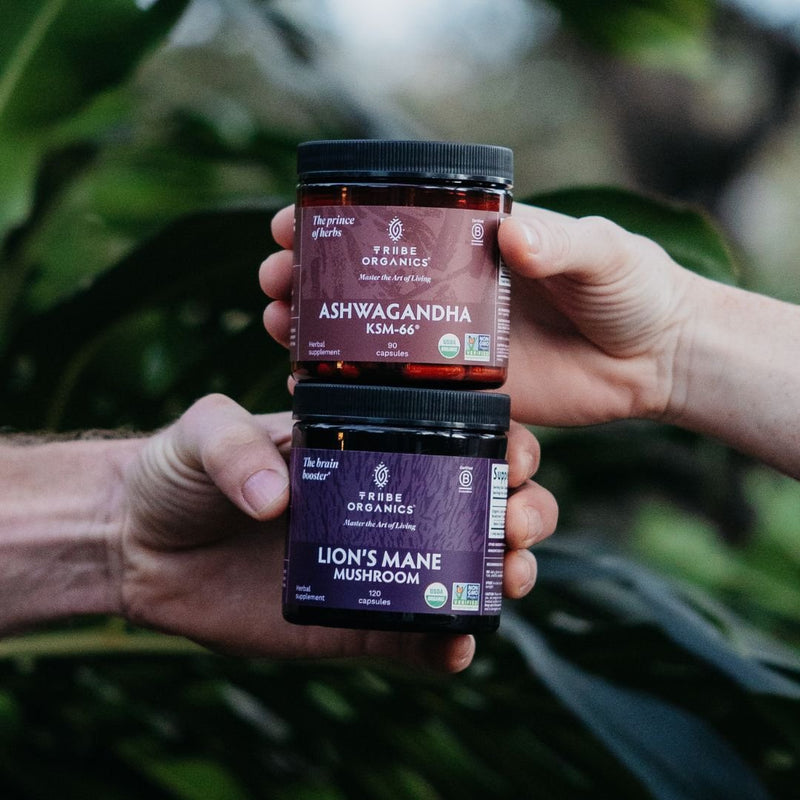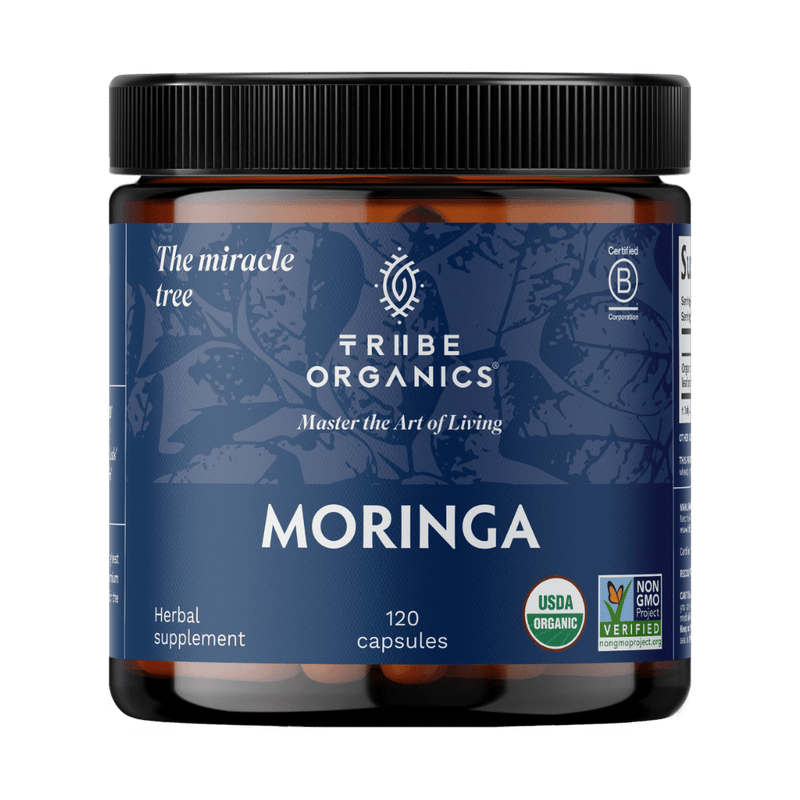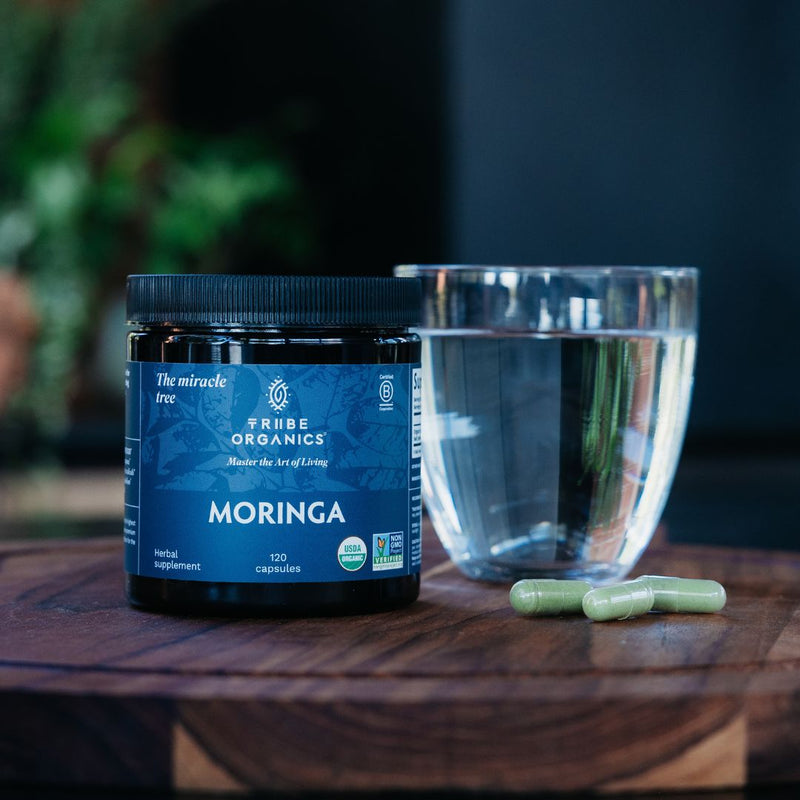Key Takeaways
- Rhodiola rosea delivers energy-enhancing stress relief without the drowsiness that ashwagandha can induce, making it perfect for daytime stress management
- Valerian root and passionflower provide effective sleep and anxiety relief similar to ashwagandha through different mechanisms
- Holy basil (tulsi) offers comparable cortisol-reducing effects while also supporting immune function and overall wellness
- Chamomile and lemon balm present milder alternatives for mild anxiety and sleep challenges with excellent safety records
- Always consult a healthcare professional before transitioning from ashwagandha to ensure correct dosing and prevent potential interactions
Why Look for Ashwagandha Alternatives?
Though ashwagandha (withania somnifera) has established itself as a powerful adaptogenic herb in ayurvedic medicine, it isn't the ideal choice for everyone seeking natural stress management. Recognizing when and why to explore ashwagandha alternatives enables you to make informed choices about your wellness journey.

Common Side Effects and Limitations
Some individuals face unwanted effects from ashwagandha, such as excessive drowsiness during the day, digestive issues like stomach upset or nausea, and potential interactions with thyroid medications. These side effects can significantly affect daily functioning and may outweigh the benefits for some users.
Research indicates that ashwagandha effectively lowers cortisol levels, but this mechanism may lead to problematic sedation for individuals who need to maintain mental performance and energy levels throughout the day. The herb's calming properties, while helpful for managing stress and enhancing sleep quality, can disrupt productivity and focus when taken at inappropriate times.
Medical Contraindications
Certain health conditions and life situations make ashwagandha unsuitable as a natural remedy. Pregnant and breastfeeding women should avoid ashwagandha due to insufficient safety data and potential hormonal effects. Individuals with autoimmune conditions such as rheumatoid arthritis, lupus, or multiple sclerosis may experience symptom exacerbation, as adaptogens can stimulate immune system activity. To learn more about potential side effects, consult with a healthcare professional before considering ashwagandha supplements.
Those on medications for thyroid disorders, diabetes, or blood pressure must exercise caution, as ashwagandha can interact with these medications and change their effectiveness. People scheduled for surgery should stop using it at least two weeks prior, as the herb may amplify the effects of anesthesia and other medications.
Different Therapeutic Goals
Your specific wellness goals might necessitate a different adaptogen approach than what ashwagandha offers. While ashwagandha is great for promoting relaxation and supporting sleep, you may need an alternative that enhances mental performance without sedation, delivers rapid anxiety relief, or provides additional benefits like immune support or liver protection.
Understanding how adaptogens function differently allows for a more targeted selection. Some individuals require energizing stress relief for demanding work environments, while others need gentle calming effects for managing anxiety throughout the day. The appropriate ashwagandha alternative is contingent on your unique stress response patterns and lifestyle requirements.
Top 8 Ashwagandha Alternatives
1. Rhodiola Rosea - The Energy-Boosting Adaptogen
Rhodiola rosea emerges as the top ashwagandha alternative for those seeking stress relief without sedation. This remarkable adaptogenic herb, native to the cold regions of eastern Europe and Asia, has been used for centuries to boost mental performance and combat mental fatigue while helping the body cope with stress.
The herb's distinctive compounds, rosavins and salidroside, function differently than ashwagandha's withanolides. Instead of primarily encouraging relaxation, rhodiola enhances cellular energy production and supports neurotransmitter balance, resulting in improved focus and reduced fatigue without drowsiness. Research shows that rhodiola can enhance mental clarity and physical endurance while retaining the stress-protective benefits that make adaptogens invaluable.
Optimal Dosing Protocol: Take 200-400mg of standardized extract (containing 3% rosavins and 1% salidroside) in the morning on an empty stomach. This timing optimizes absorption and prevents any potential interference with sleep quality, as rhodiola's energizing effects can persist for 6-8 hours.
Clinical Evidence: A 2018 study involving stressed professionals indicated that 400mg of rhodiola daily reduced stress-related fatigue by 50% within 8 weeks, while also improving cognitive function and work performance. Participants reported an enhanced ability to cope with challenging situations without the afternoon energy crashes common with stimulants.
Best Candidates: Rhodiola is ideal for professionals facing chronic stress who need daytime energy, students preparing for exams, athletes seeking performance enhancement, and anyone dealing with burnout or mental fatigue. It's especially beneficial for shift workers and frequent travelers managing disrupted sleep schedules.
2. Valerian Root - The Natural Sleep Aid
Valerian root is one of the most effective natural remedies for sleep disorders and anxiety-related insomnia. Unlike ashwagandha's gradual calming effects, valerian works quickly through direct interaction with GABA receptors in the brain, producing pronounced sedative effects that can significantly enhance sleep quality within the first week of use.
The herb's key active compounds, valerenic acid and isovaleric acid, boost GABA availability and decrease nervous system hyperactivity. This mechanism makes valerian especially effective for individuals whose stress presents as racing thoughts, trouble falling asleep, or frequent nighttime awakenings. The herb can cut sleep latency by 15-20 minutes and enhance deep sleep phases.
Dosing Guidelines: Take 300-600mg of standardized extract (containing 0.5-1% valerenic acid) roughly 30 minutes before bedtime. Start with the lower dose to gauge tolerance, as some individuals might experience morning grogginess. Alternatively, brew tea using 2-3 grams of dried root steeped for 10-15 minutes.
Research Backing: A comprehensive 2020 meta-analysis of valerian studies found substantial sleep quality improvement in 89% of participants across various trials. The research showed consistent benefits for both sleep onset and maintenance, with effects comparable to low-dose prescription sleep aids but with fewer side effects. If you're interested in comparing other adaptogenic herbs, you can learn about the differences between Rhodiola and Ashwagandha and their key benefits and side effects.
Safety Considerations: Avoid mixing valerian with alcohol, benzodiazepines, or other sedating medications. Some users may experience paradoxical stimulation, especially at higher doses. Gradually discontinue use after extended periods to avoid potential rebound insomnia.
3. Passionflower - The Anxiety Specialist
Passionflower is an outstanding ashwagandha alternative specifically designed for managing anxiety and panic-related symptoms. This gentle yet effective herbal remedy provides GABAergic effects akin to prescription anti-anxiety medications, but with a better safety profile and minimal risk of dependence or tolerance.
The plant's active compounds, including vitexin and isovitexin, work synergistically to diminish excessive neural firing associated with anxiety while fostering a sense of calm alertness. Unlike sedative alternatives, passionflower can relieve anxiety without significantly impairing cognitive function or inducing drowsiness, making it suitable for daytime use in managing stress and anxiety.
Recommended Dosing: Use 250-500mg of standardized extract daily, divided into two doses, or prepare tea using 4-8 grams of dried herb. For acute anxiety episodes, an extra 250mg dose can be taken as needed, not exceeding a total daily intake of 1000mg.
Clinical Validation: A landmark 2017 clinical trial revealed that passionflower extract produced a 45% reduction in anxiety scores, with effects comparable to 0.5mg lorazepam but without cognitive impairment or dependency risk. Participants maintained normal mental performance while experiencing significant anxiety relief throughout the treatment period.
Ideal Applications: Passionflower is effective for generalized anxiety disorder, social anxiety, panic attacks, and anxiety-induced insomnia. It's especially beneficial for individuals who experience physical anxiety symptoms such as muscle tension, rapid heartbeat, or digestive upset tied to stress.
4. Holy Basil (Tulsi) - The Cortisol Regulator
Holy basil, esteemed in ayurvedic medicine as "the elixir of life," provides comprehensive adaptogenic benefits that closely mirror ashwagandha's effects while presenting unique advantages. This revered herb excels at regulating cortisol levels and supporting the body's natural stress response, all while boosting energy levels and promoting immune health.
The herb's varied phytochemical profile, featuring ursolic acid and eugenol, allows holy basil to offer both immediate stress relief and long-term resilience building. Unlike single-mechanism herbs, holy basil addresses multiple stress pathways simultaneously, making it an excellent all-encompassing ashwagandha alternative for individuals seeking broad-spectrum stress management.
Optimal Protocol: Take 300-600mg of standardized extract (containing 2.5% ursolic acid) twice daily with meals to enhance absorption and lessen any potential digestive sensitivity. Alternatively, enjoy 2-3 cups of tulsi tea throughout the day for gentler, sustained effects.
Research Findings: A significant 2019 study indicated that 500mg of holy basil daily for 6 weeks led to notable reductions in cortisol levels (up to 30%), along with improvements in stress-related symptoms such as fatigue, mood fluctuations, and sleep quality. Participants also demonstrated enhanced immune markers and improved overall wellness.
Additional Benefits: Beyond stress management, holy basil delivers antioxidant protection, supports healthy blood sugar metabolism, promotes respiratory health, and possesses antimicrobial properties. These multifaceted benefits make it especially valuable for individuals experiencing stress-related health impacts.
5. Chamomile - The Gentle Calmer
Chamomile stands as the most gentle and widely accessible ashwagandha alternative, providing mild yet consistent stress relief and sleep support with an exceptional safety profile. This time-honored herbal remedy operates through apigenin, a flavonoid that binds to benzodiazepine receptors, producing subtle sedative and anxiolytic effects without the intensity of stronger herbs.
The herb's gentle character makes it ideal for stress management newcomers, older adults, and those sensitive to stronger adaptogens. Chamomile's calming effects extend beyond mental relaxation to include digestive soothing and anti-inflammatory properties, addressing stress-related gastrointestinal symptoms that often accompany anxiety and tension.
Dosage Recommendations: Take 400-800mg of standardized extract daily, or enjoy 2-3 cups of chamomile tea throughout the day. For sleep support, consume one cup of strong chamomile tea (using 2 tea bags or 2 teaspoons of loose flowers) 30-60 minutes before bedtime.
Safety Profile: Chamomile displays excellent tolerance across varied populations with minimal drug interactions and side effects. This renders it suitable for long-term use and safe for combination with other natural remedies or medications under professional guidance.
Perfect Applications: Opt for chamomile for mild anxiety, stress-related digestive issues, difficulty winding down at night, or as a foundational herb when beginning an adaptogen regimen. It's particularly helpful for those who find stronger adaptogens too stimulating or sedating.
6. Lemon Balm - The Mood Enhancer
Lemon balm presents a unique dual-action strategy for stress management, integrating GABA enhancement with acetylcholinesterase inhibition to offer both calming effects and cognitive support. This adaptable herb tackles stress-related mood disturbances while preserving mental clarity and focus, making it an excellent choice for stress management during challenging cognitive tasks.
The herb's rosmarinic acid and citronellal compounds work in harmony to mitigate stress and anxiety while potentially boosting memory formation and mental performance. This synergy makes lemon balm especially valuable for students, professionals, and anyone needing to maintain cognitive function while managing stress and anxiety.
Dosing Strategy: Use 300-500mg of standardized extract daily in divided doses, or consume 1.5-4.5 grams of dried herb as tea throughout the day. For acute stress relief, an additional 200-300mg can be taken as needed, particularly before stressful events or situations.
Scientific Support: A 2016 study revealed that 600mg of lemon balm extract significantly enhanced mood and cognitive performance under stress, with participants demonstrating improved problem-solving abilities and reduced stress-related cognitive impairment during challenging tasks.
Special Applications: Lemon balm is effective for ADHD-related symptoms, digestive anxiety, viral infections (when applied topically), and scenarios requiring calm alertness. It's particularly beneficial for those whose stress presents as scattered thinking or difficulties concentrating.
7. Schisandra Chinensis - The Liver Protector
Schisandra chinensis offers unique advantages as an ashwagandha alternative, combining traditional adaptogenic benefits with powerful liver-protective properties. This distinctive "five-flavor berry" has been valued in Traditional Chinese Medicine for over 2000 years for its ability to enhance vitality while safeguarding against stress-related organ damage.
The herb's lignans, especially schisandrins, provide multiple action mechanisms, including liver detoxification support, mental clarity enhancement, and physical endurance improvement. This makes schisandra particularly useful for individuals facing stress-related liver burden from medications, environmental toxins, or lifestyle factors.
Dosage Guidelines: Take 500-2000mg of standardized extract (containing 9% schisandrins) daily, preferably divided into two doses with meals. Higher doses may be needed for therapeutic liver support, but this should be done under healthcare professional supervision.
Traditional Wisdom: With over two millennia of documented use in Traditional Chinese Medicine, schisandra has consistently been recommended for combating fatigue, enhancing mental clarity, and supporting longevity. Modern research validates many of these traditional applications while uncovering additional advantages for liver health and cellular protection.
Modern Applications: Schisandra is particularly beneficial for shift workers, individuals with chronic fatigue syndrome, those on multiple medications, and anyone exposed to environmental toxins or high stress levels that may influence liver function.
8. Eleutherococcus Senticosus (Siberian Ginseng) - The Performance Enhancer
Eleutherococcus senticosus, commonly known as Siberian ginseng, completes our ashwagandha alternatives with its remarkable ability to enhance both mental and physical performance under stress. This resilient shrub from Siberia offers adaptogenic benefits while specifically supporting endurance, stamina, and resilience during prolonged stress.
The herb's eleutherosides operate differently than true ginsengs, providing sustained energy enhancement without the stimulation or side effects linked to Panax varieties. This makes Siberian ginseng especially appropriate for athletes, manual laborers, and anyone requiring prolonged physical and mental performance enhancement.
Cycling Protocol: Use 300-1200mg of standardized extract (containing 0.8% eleutherosides) daily for 6-8 week cycles, followed by 2-week breaks to prevent tolerance development. This cycling method maintains effectiveness while minimizing adaptation that can diminish benefits over time.
Athletic Research: Studies with trained athletes revealed that 800mg daily of Siberian ginseng improved endurance capacity by 23% while decreasing recovery time and stress markers. These advantages extended beyond physical performance to include enhanced immune function and stress resilience.
Performance Applications: Select Siberian ginseng for athletic training phases, physically demanding work situations, immune support during stress, and scenarios requiring sustained mental and physical performance without stimulant-related side effects.

Choosing the Right Alternative for Your Needs
Selecting the best ashwagandha alternative necessitates understanding your specific symptoms, lifestyle demands, and therapeutic objectives. Rather than adopting a one-size-fits-all strategy, consider your primary concerns and align them with the most suitable herbal remedy or combination of supplements.
For Sleep and Relaxation
If enhancing sleep quality and promoting relaxation are your top priorities, three herbs emerge as the most effective choices:
Valerian root provides the most robust sleep-inducing effects, usually shortening time to sleep by 15-20 minutes and increasing deep sleep phases. This makes it excellent for those with severe insomnia or difficulty falling asleep despite exhaustion.
Chamomile offers the gentlest method, ideal for mild sleep disturbances or those new to herbal medicine. Its safety profile makes it suitable for long-term use and combination with other natural remedies.
Passionflower excels when anxiety is the primary barrier to restful sleep, addressing racing thoughts and nervous tension that prevent relaxation.
Timing Strategies
- Take valerian root 30 minutes before bedtime for maximum effectiveness
- Chamomile can be consumed 1-2 hours before sleep as a warm tea ritual that signals your body to begin winding down
- Passionflower works well throughout the evening hours, with a final dose 45 minutes before bed
Combination Approaches
For mild sleep issues, combine chamomile and lemon balm as a soothing bedtime tea. Severe insomnia may benefit from valerian root paired with passionflower, but this combination should be implemented gradually and with healthcare professional guidance to avoid excessive sedation.
For Daytime Stress and Energy
Managing stress while maintaining energy levels and mental performance requires a different approach than evening relaxation herbs.
Rhodiola rosea leads this category with its unique ability to reduce stress-related fatigue while enhancing focus and cognitive function. Its energizing properties make it ideal for morning use and demanding work situations.
Holy basil provides balanced stress relief without sedation, making it suitable for consistent daily use. Its cortisol-regulating effects help maintain stable energy levels throughout the day while supporting immune system function and overall resilience.
Schisandra chinensis offers specialized benefits for individuals dealing with stress-related liver burden or chronic fatigue. Its hepatoprotective properties make it particularly valuable for those taking medications or exposed to environmental stressors that may impact liver function.
Morning Protocols
- Take rhodiola rosea on an empty stomach first thing in the morning to maximize absorption and prevent potential sleep interference
- Holy basil can be taken with breakfast to enhance absorption while providing sustained stress relief throughout the day
- Schisandra works well mid-morning with a light snack
Work-Day Strategies
Lemon balm provides excellent cognitive stress relief without sedation, making it perfect for high-demand intellectual work. Eleutherococcus senticosus supports both mental and physical demands, ideal for jobs requiring sustained concentration and physical activity.
For Anxiety and Mood Support
Anxiety management requires careful consideration of severity levels and symptom patterns.
Mild Anxiety Protocol
For mild anxiety and occasional nervous tension, chamomile and lemon balm provide gentle relief with minimal risk of side effects or interactions. These herbs can be used throughout the day as needed or as preventive measures before stressful situations.
Begin with chamomile tea (2-3 cups daily) or low-dose lemon balm extract (300mg daily) to establish baseline calming effects. These gentle herbs can be used consistently without tolerance development or dependency concerns.
Moderate Anxiety Approach
Moderate anxiety responds well to passionflower's GABAergic effects, which can provide significant relief without cognitive impairment. Holy basil offers comprehensive support by addressing both anxiety symptoms and the underlying stress response that contributes to ongoing nervous tension.
Passionflower extract (250-500mg daily) provides more substantial anxiety relief, while holy basil (300mg twice daily) addresses both immediate symptoms and long-term stress resilience. Monitor response carefully and adjust dosing based on effectiveness and any side effects.
Severe Anxiety Considerations
Combination protocols using passionflower with valerian root may provide enhanced anxiety relief, but should only be implemented with professional guidance. Severe anxiety often requires comprehensive treatment approaches that may include professional counseling, lifestyle modifications, and potentially prescription medications alongside herbal support.
Safety Considerations and Drug Interactions
Understanding safety profiles and potential interactions ensures responsible use of ashwagandha alternatives while maximizing their therapeutic benefits. Each herb carries specific considerations that must be evaluated in the context of your overall health status, current medications, and medical history.
Contraindications and Special Populations
Pregnancy and Breastfeeding
Pregnancy and breastfeeding present unique considerations for each herbal alternative. Chamomile generally receives the best safety rating during pregnancy when used in normal food amounts, though therapeutic doses should be avoided. Valerian root and passionflower lack sufficient safety data for pregnant or nursing mothers and should be avoided during these periods.
Autoimmune Conditions
Individuals with autoimmune conditions must exercise particular caution with immune-stimulating herbs like holy basil and eleutherococcus senticosus. While these herbs can support immune system function in healthy individuals, they may potentially exacerbate autoimmune symptoms by increasing immune activity.
Medication Interactions
Several ashwagandha alternatives can interact with common medications, requiring careful monitoring and potential dosage adjustments.
Valerian root enhances the effects of sedating medications including benzodiazepines, sleep aids, and certain antidepressants. This interaction can lead to excessive sedation and should be managed by healthcare professionals.
Rhodiola rosea may interact with diabetes medications by affecting blood sugar regulation, potentially requiring medication adjustments. The herb can also influence blood pressure medications, particularly in individuals with existing cardiovascular conditions.
Blood Thinning Concerns
Some herbs, particularly when used in therapeutic doses, may affect blood clotting mechanisms. Individuals taking warfarin, aspirin, or other anticoagulants should exercise caution and maintain regular monitoring of clotting parameters when using herbal supplements.
Monitoring Requirements
Certain ashwagandha alternatives require periodic monitoring to ensure safe long-term use.
Schisandra chinensis, while hepatoprotective, should be monitored with periodic liver function tests when used in high doses or for extended periods, particularly in individuals with existing liver conditions.
Rhodiola rosea may affect blood pressure and heart rate, requiring monitoring in individuals with cardiovascular conditions. Regular blood pressure checks ensure that the herb's effects remain within safe parameters and don't interfere with existing cardiovascular medications.
Starting Protocols
Begin with the lowest effective dose for any new herbal supplement, increasing gradually over 1-2 weeks while monitoring for both benefits and any adverse effects. This approach allows your body to adapt while minimizing the risk of side effects or unexpected reactions.

Dosage Guidelines and Timing
Proper dosing and timing optimization can significantly impact the effectiveness and safety of ashwagandha alternatives. Understanding standardization, quality markers, and timing strategies ensures you receive maximum therapeutic benefits while minimizing potential side effects.
Standardization and Quality Markers
When selecting ashwagandha alternatives, prioritize supplements that specify active compound percentages on their labels. Rhodiola rosea should contain 3% rosavins and 1% salidroside, while holy basil extracts should specify ursolic acid content (typically 2.5%). These standardization markers ensure consistent potency and predictable effects.
Third-party testing provides additional quality assurance, verifying that products contain stated ingredients in specified amounts while confirming absence of contaminants, heavy metals, and adulterants. Look for certifications from organizations like NSF International, Informed Sport, or USP for the highest quality standards.
Extraction Methods
Different extraction methods can significantly impact bioavailability and effectiveness. Water extracts typically preserve water-soluble compounds, while alcohol extracts capture fat-soluble constituents. CO2 extractions often provide the most complete phytochemical profiles, though they may be more expensive.
Timing Optimization
The timing of ashwagandha alternatives can dramatically influence their effectiveness and your overall experience.
Energizing adaptogens like rhodiola rosea work best when taken in the morning on an empty stomach, allowing for maximum absorption while preventing potential sleep interference from their stimulating effects.
Relaxing herbs require different timing strategies to align with your body's natural rhythms. Valerian root achieves optimal effects when taken 30 minutes before bedtime, allowing sufficient time for absorption and onset of sedative effects. Chamomile can be consumed 1-2 hours before sleep as part of an evening routine that signals your body to prepare for rest.
Food Interactions
Some herbs, such as Ashwagandha, absorb better with food, while others work best on an empty stomach:
- With meals: Holy basil and schisandra benefit from being taken with meals to enhance absorption and minimize potential digestive sensitivity
- Empty stomach: Rhodiola and passionflower typically work better on an empty stomach for faster onset and stronger effects
Duration Recommendations
Short-Term Acute Use (2-4 weeks)
Short-term use suits situations like exam periods, temporary work stress, or recovery from illness. This approach allows you to address immediate needs without risking tolerance development or dependency. Rhodiola and passionflower work particularly well for acute stress management with rapid onset of effects.
Long-Term Protocols (3-6 months with periodic breaks)
Long-term protocols benefit chronic stress management and ongoing health optimization. Holy basil, chamomile, and lemon balm can be used consistently for extended periods with minimal risk of tolerance or adverse effects. However, even safe herbs benefit from occasional breaks to maintain effectiveness and allow your body's natural systems to function independently.
Cycling Strategies
Some adaptogens, particularly eleutherococcus senticosus, require cycling to maintain effectiveness. Use these herbs for 6-8 weeks followed by 2-week breaks, preventing adaptation that can reduce therapeutic benefits. This approach maintains long-term effectiveness while minimizing the risk of tolerance development.
Cost Comparison and Availability
Understanding the financial investment required for different ashwagandha alternatives helps in making sustainable choices that fit your budget while meeting your therapeutic needs. Prices vary significantly based on extraction methods, standardization levels, and quality certifications.
Budget-Friendly Options
Chamomile tea represents the most economical entry point into herbal stress management, with high-quality organic options available for under $10 per month when used consistently. Dried lemon balm for tea preparation offers similar affordability while providing gentle stress relief and mood support throughout the day.
Basic valerian root preparations, particularly non-standardized dried root capsules, provide potent sleep support at moderate cost. While these options may lack standardization guarantees, they offer significant therapeutic benefits for individuals prioritizing affordability over precise dosing consistency.
Mid-Range Choices
Standardized passionflower and holy basil extracts typically fall into the moderate price range, offering excellent value for their therapeutic benefits. These supplements provide consistent potency and reliable effects while remaining accessible for most budgets when used for targeted periods rather than continuous long-term use.
Quality rhodiola rosea extracts command higher prices due to the herb's limited growing regions and complex extraction requirements. However, the herb's rapid onset and potent effects often make it cost-effective for acute stress management situations where immediate results justify the higher investment.
Premium Products
Pharmaceutical-grade schisandra and high-potency rhodiola extracts represent the premium end of the market, offering maximum bioavailability and stringent quality controls. These products justify their higher cost through superior extraction methods, third-party testing, and standardization guarantees that ensure consistent therapeutic outcomes.
Where to Buy
Reputable supplement companies with transparent manufacturing practices offer the best balance of quality and value. Health food stores provide the advantage of knowledgeable staff who can offer guidance, while online retailers often provide better pricing and wider selection. Always verify that retailers maintain proper storage conditions and offer reasonable return policies.
Frequently Asked Questions
Shop best sellers
Explore our collection of favorite items that have gained popularity for their quality and satisfaction.




